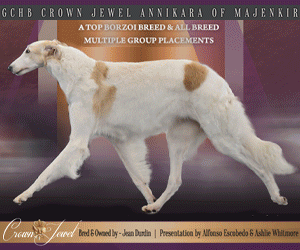Early Spaying, Neutering Large-Breed Dogs Linked to Higher Risk of Obesity and Nontraumatic Orthopedic Injuries
 Spaying or neutering large-breed dogs can put them at a higher risk for obesity and, if done when the dog is young, nontraumatic orthopedic injuries, reports a new study based on data from the Morris Animal Foundation Golden Retriever Lifetime Study. The spay/neuter study was published today in the journal PLOS ONE.
Spaying or neutering large-breed dogs can put them at a higher risk for obesity and, if done when the dog is young, nontraumatic orthopedic injuries, reports a new study based on data from the Morris Animal Foundation Golden Retriever Lifetime Study. The spay/neuter study was published today in the journal PLOS ONE.
“For years, we’ve been taught that spaying or neutering your dog is part of being a responsible pet owner, but there really are advantages and disadvantages to consider when making that decision,” said Dr. Missy Simpson, Morris Animal Foundation epidemiologist and lead author on the paper. “Our study results give dog owners and veterinarians new information to consider when deciding on when to spay or neuter their dog, especially when considering the long-term health of their pet.”
In the general canine population, estimates are that one-third to one-half of all large-breed dogs are either overweight or obese. Roughly 2% of the same population suffer nontraumatic orthopedic injuries, such as cruciate ligament ruptures.
Dr. Simpson studied health data, collected over six years, from the entire Golden Retriever Lifetime Study cohort of more than 3,000 golden retrievers. Approximately one-half had undergone spay or neuter surgery.
She found that dogs that were spayed or neutered were 50% to 100% more likely to become overweight or obese, and the risk didn’t appear to be affected by the dog’s age at the time of surgery. Whether the dog had the procedure at 6 months or 6 years, the risk of weight gain remained relatively constant.
However, age at surgery does appear to be a significant factor regarding nontraumatic orthopedic injuries. Dr. Simpson found that dogs spayed or neutered before 6 months of age were at a 300% greater risk of sustaining those injuries.
While the paper focused on golden retrievers, Dr. Simpson noted the results likely can be applied to other breeds particularly other large- and giant-breed dogs.
“Different owners have different concerns for their dogs and the decision to spay or neuter your dog is a very complex one,” said Dr. Janet Patterson-Kane, Morris Animal Foundation Chief Scientific Officer. “It’s a balance in managing the risks of neutering or not neutering for owners committed to their dog’s health.”
The Morris Animal Foundation Golden Retriever Lifetime Study is the most extensive, prospective study ever undertaken in veterinary medicine. Launched in 2012, and reaching full enrollment in 2015, it gathers information on more than 3,000 golden retrievers from around the United States, throughout their lives, to identify the nutritional, environmental, lifestyle and genetic risk factors for cancer and other diseases in dogs.
Owners and veterinarians complete yearly online questionnaires about the health status and lifestyle of the dogs. Biological samples also are collected, and each dog has a physical study examination annually.
The Morris Animal Foundation Golden Retriever Lifetime Study is funded in part by the Mark and Bette Morris Family Foundation, Petco Foundation, Blue Buffalo Company, Mars Veterinary Inc., ANTECH Diagnostics and Imaging, VCA Inc., Zoetis, Golden Retriever Foundation, and the Hadley and Marion Stewart Foundation.
About Morris Animal Foundation
Morris Animal Foundation’s mission is to bridge science and resources to advance the health of animals. Founded by a veterinarian in 1948, we fund and conduct critical health studies for the benefit of all animals. Learn more at morrisanimalfoundation.org.
Short URL: http://caninechronicle.com/?p=167356
Comments are closed











